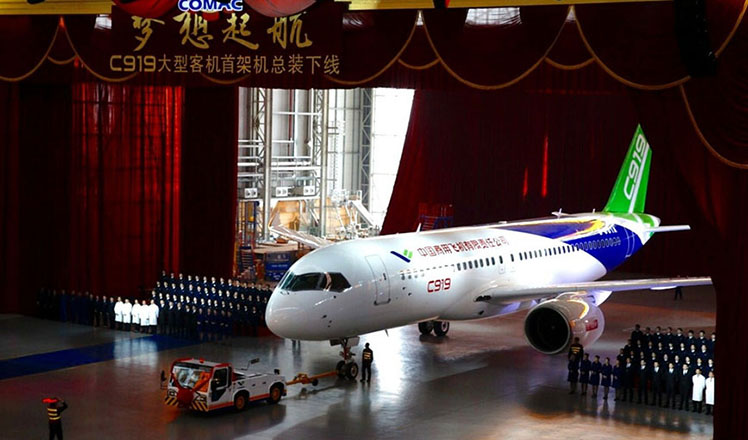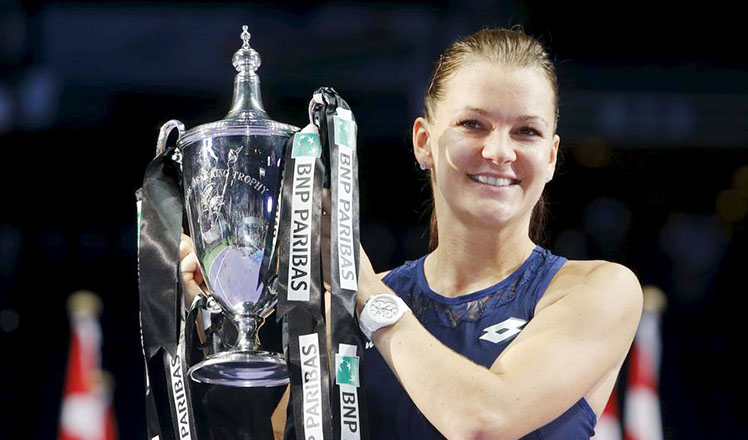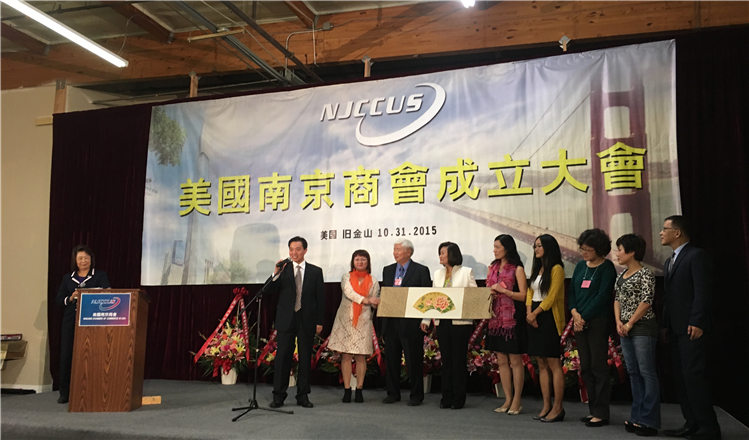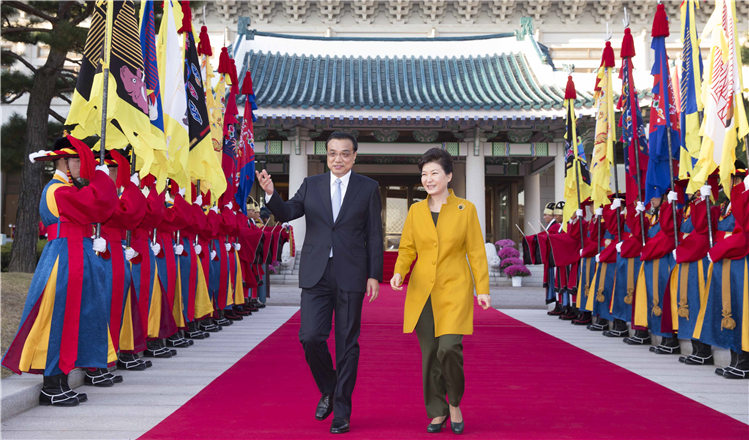Chinese go the distance for marathon
Updated: 2015-11-02 12:00
By Hezi Jiang in New York(China Daily USA)
|
||||||||
Participation in premier running event reflects sport's appeal in China
The 224 Chinese runners who flew across the Pacific to leave their footprints on the five boroughs of New York City also represent a booming interest in marathon running in their home country.
For Tian Tongsheng, it was his third trip to New York for the marathon, which unfurled across the city on Sunday.
 |
|
Moving pictures: (From left) Wu Zifu, a business executive, supports the efforts of Chinese runners in the New York City Marathon on Sunday. Li Xiaobai, also a business executive, runs with the Chinese national flag. Ma Liangwu, from the small city of Chuxiong in Yunnan province, crosses the finish line in Central Park. |
"The first time, I didn't even see the starting line," said Tian. That was in 2012, when the race was canceled after the city was battered by Tropical Storm Sandy.
"In 2013, I came again, after experiencing the Boston Marathon bombing at 700 meters from the finish line," he said. "I finished it alone. This time, I brought a group."
At 63, Tian looked trim in a fitted running shirt as he offered his observations from the lounge of the Grand Hyatt hotel in midtown Manhattan on Oct 29.
Tian is the co-founder of Runnar, an international travel partner of the TCS New York City Marathon. He took about 100 runners and their relatives with him for the 26-mile course.
Palace Travel, another travel agency, brought another 100. Palace offers a $2,000 New York Marathon package on its website, which includes registration for the race and three nights at the Excelsior Hotel.
People can also choose to participate in a seven-day East Coast tour after the race.
Wang Qi, CEO of Palace Travel US Inc, said that as the marathon becomes more popular in China, marathon travel becomes a hip thing to do.
Marathon-running took off in China in 2013, after years of a rapidly growing economy.
"Many people had worked very hard for a decade, and they realized that their health was deteriorating," said Tian. The prosperous economy allowed people to rethink their lifestyles.
"The immigration officer used to ask many questions, but this time - so fast," Li Xiaobai, 58, chairman of the New Silk Road fashion organization and a marathon participant, said on Oct 29. Li told the officer at John F. Kennedy International Airport that he was here for the race and he got a thumbs-up.
Most of the runners, especially ones participating in international races, are business people. Li and many of his classmates from the Cheung Kong Graduate School of Business started their running journey with the Gobi Desert challenge, during which they cross the Gobi Desert as part of an annual competition for executive MBA students of top global Chinese business schools. This year, more than 2,000 students participated in the 112-kilometer endurance challenge.
"The Gobi Desert race got us inspired," he said. "It's all about persistence. Now we have many WeChat groups. There are ones for marathon runners, for bikers, for mountain climbers."
Tian was hooked on running after years of mountain climbing, another trend among business professionals.
"Running is the sport with the lowest barrier of entry," he said. "All you need is a pair of shoes. You have no competitors. You are competing with yourself. The philosophy is very beneficial to businessmen."
Tian has published two books and has given speeches on running for years. Other business participation also has supported the trend across the country among the middle class, Tian said.
Since Li started running, he said that many of his colleagues have been more or less influenced.
The number of marathon races in China has been rapidly expanding. Last year, 56 were held across China, while this year so far there have been more than 100 races. There were 27 simultaneous marathon races across China on Oct 18, according to Sina.com.
Chang Chun, another co-founder of Runnar, recalled that in 2007 and 2008, when he was in college, his university had to convince the students to participate in the Beijing Marathon by telling them they would get a T-shirt afterward.
"This year, nearly 70,000 people registered for a race of 25,000," he said.
Running organizations also are sprouting up.
Sun Yingjie, one of China's most famous female long-distance runners, started her running club in 2014, returning to the public eye after retiring in 2009. Her ear-length hair now has grown to her waist.
"I teach people how to enjoy running," Sun said on Saturday at the Hilton. "The record used to be under my feet and now it's in my phone," she joked about herself taking selfies while running.
Her club has nearly 5,000 members across China, with the youngest 8 years old and the oldest 75. Each pays about $1,900 annually to take one class per week on how to run fast and safely.
Many business people also started non-profit organizations to promote the running. Ball of Yarn is a charity running group started by several top executives in finance and real estate.
Zhu Xianxu, chairman of Beijing Hong Yi Thermal Energy Corp and deputy secretary of Ball of Yarn, was passionate about the group. He said he started running to lose weight, and he now has run 26 full-length marathons.
So far they have about 50 core members who contribute about $1,600 a year to the organization. Also, each has to agree to run seven marathons annually. For each marathon one fails to run, he or she has to contribute an additional $315.
Zhou Wei, chairman of the Beijing Shichuang Shengye Elevator Co and a member of the organization, used to be a golf lover: "I didn't bring my golf bag here. I bring my running shoes wherever I go. I even put them in my carry-on bag to make sure they are protected."
 Chinese go the distance for marathon
Chinese go the distance for marathon
 First made-in-China large plane rolls off assembly lines
First made-in-China large plane rolls off assembly lines
 Mega projects undertaken in 2011-2015
Mega projects undertaken in 2011-2015
 The world in photos: Oct 26 - Nov 1
The world in photos: Oct 26 - Nov 1
 Art installations brighten Shanghai subway
Art installations brighten Shanghai subway
 Radwanska masters art of finishing on a high note
Radwanska masters art of finishing on a high note
 Nanjing Chamber of Commerce sets up in Silicon Valley
Nanjing Chamber of Commerce sets up in Silicon Valley
 South Korean President welcomes Premier Li Keqiang
South Korean President welcomes Premier Li Keqiang
Most Viewed
Editor's Picks

|

|

|

|

|

|
Today's Top News
Tu first Chinese to win Nobel Prize in Medicine
Huntsman says Sino-US relationship needs common goals
Xi pledges $2 billion to help developing countries
Young people from US look forward to Xi's state visit: Survey
US to accept more refugees than planned
Li calls on State-owned firms to tap more global markets
Apple's iOS App Store suffers first major attack
Japan enacts new security laws to overturn postwar pacifism
US Weekly

|

|






